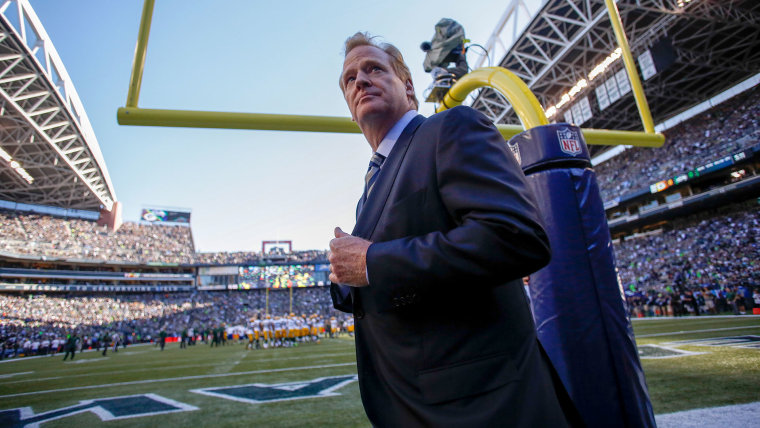The multi-billion dollar National Football League has enjoyed tax-exempt status -- as a trade organization -- for decades, which has occasionally drawn scrutiny from federal officials. But six months ago, in the wake of player arrests and allegations of league indifference, pressure on the NFL reached new levels of intensity in D.C.
As it turns out, federal action won't be necessary after all.
In a dramatic move long called for by critics of professional football, NFL Commissioner Roger Goodell announced Tuesday that the league was giving up the tax exempt status it has enjoyed since 1942. All 32 NFL teams currently pay their own taxes as privately owned businesses. Goodell called the league's exemption a "distraction" and notified all the teams in a letter that the NFL would file a return as a taxable entity in the 2015 fiscal year.
It's worth clarifying that professional football has never been an entirely tax-exempt enterprise, but the NFL itself has been organized as a 501(c)(6) tax-exempt organization. which in turn has allowed the league "to avoid owing taxes on certain activities."
It's this tax benefit many have hoped to change. Sen. Maria Cantwell (D-Wash.) unveiled a proposal last year to strip the NFL of its tax-exempt status at least in part because of the Washington team's offensive mascot name. Soon after, Sen. Cory Booker (D-N.J.) and others targeted the NFL's tax status in the wake of domestic-violence scandals and the league's often-ridiculous handling of the incidents.
The league wasn't likely to face real consequences -- congressional Republicans weren't interested, and they're in the majority -- but the underlying questions weren't going away.
In terms of the financial impact, the NFL generates over $9 billion in revenue, making it the most lucrative sports league on the planet, and the voluntary relinquishment of its tax exemption is expected to cost the NFL "an estimated $109 million over the next decade."
As Bloomberg News added, the shift also means "the end of federal disclosure requirements that put Goodell's salary and some other league information in the public domain."
For more background on the NFL's tax status, Jordan Weissmann had a good piece on this last year.
